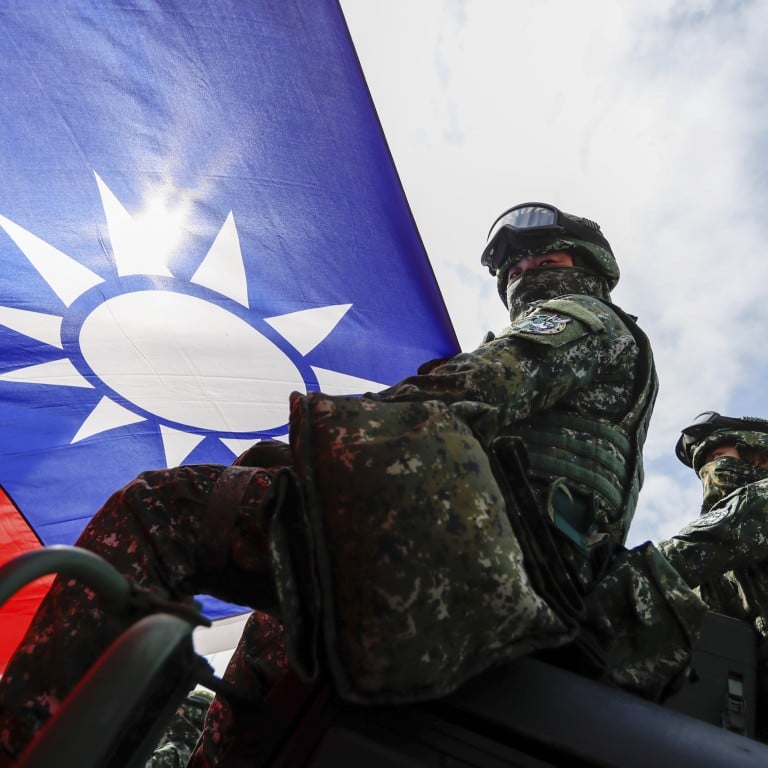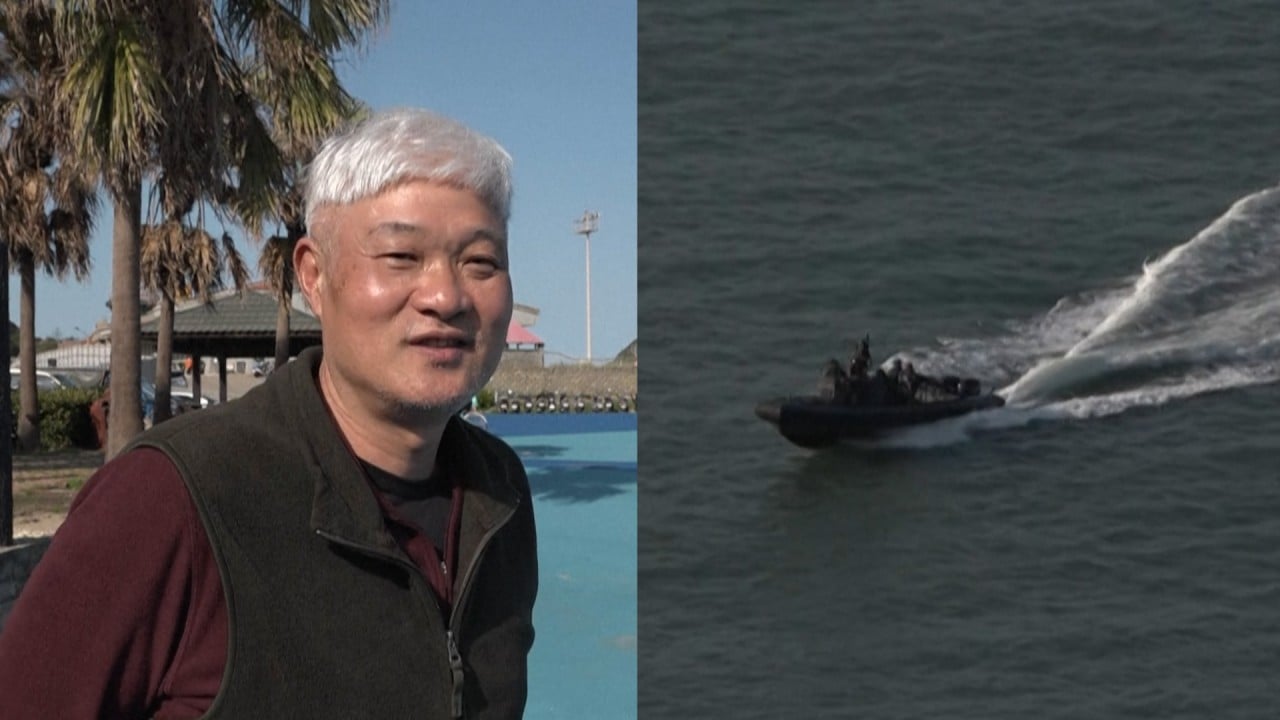
Taiwan’s new biosafety lab to counter – not develop – bioweapons, defence ministry says
- Island says new facilities will research ways to fend off biological warfare and help prevent future pandemics
- The project was announced after Taipei denied a media report claiming the US asked Taiwan to develop biological weapons
But the project will not develop biological weapons, the island’s authorities stressed.
“The [planned construction] is in response to the rise of highly contagious pathogens in recent years,” Taiwan’s defence ministry said on Monday after a local news outlet reported that the United States had asked Taiwan to develop weaponised biological agents.
Taipei denied the report.
It did not give further details of the plan.
Cross-strait tensions have escalated since August with the PLA intensifying its military activities around Taiwan, including sending warplanes almost daily over the median line, that informal dividing line in the Taiwan Strait.
PLA aircraft and warships have also been seen close to eastern Taiwan, where defences are reportedly weaker.
The sensitivity of the biolab issue prompted the defence ministry to issue three statements dismissing the report as groundless.
“In dealing with nuclear and biological warfare, the military emphasises defence and protection. The purpose of building a P4 lab by the National Defence Medical Centre is primarily for detection of the pathogens of diseases and pandemics in order to find countermeasures,” bureau spokesman Yang Chung-chi said.
P4 labs have the highest level of biological safety and handle the most dangerous pathogens.
Yang said the island needed to build a new generation of biosafety facilities to bolster the island’s ability to counter biological warfare and deal with future pandemics.
US Navy patrol plane flies over Taiwan Strait amid increased PLA activity
Yang said Taiwan had signed the Convention on the Prohibition of the Development, Production and Stockpiling of Bacteriological (Biological) and Toxin Weapons and on their Destruction, which bans the development, production, acquisition and retention of biological and toxin weapons.
“We will never develop, manufacture, stockpile and acquire biological and toxic agents for military use,” he said.
Taiwan’s presidential office and foreign ministry also issued multiple statements saying there were no meetings to discuss development of bioweapons, calling the report a fabrication and disinformation aimed to undermine the ruling Democratic Progressive Party government. Former premier Su Tseng-chang also denied he had ever convened such meetings.
The US de facto embassy in Taiwan and the State Department said there was “no truth to this report”, adding that Washington fully complied with its obligations under the Biological Weapons Convention and did not develop or possess such weapons, nor did it support anyone else to do so.
Taiwan has a P4 lab that was built more than three decades ago at the National Defence Medical Centre in Sanxia, New Taipei – a facility that has long been shrouded in secrecy.
The lab’s main purpose was to research and develop anti-biological agents to enable the island to deter bioweapon attacks in a potential cross-strait conflict, according to the ministry.
In October 2021 after a surge in Covid-19 cases, the ministry announced that the centre would set up a new P4 lab to deal with the most dangerous pathogens.
It said the new lab was needed to comply with the strictest international safety standards as the existing one no longer fulfilled all basic regulations.
It was not immediately known whether the new lab had been completed or whether it had anything to do with the biosafety facilities revealed by the ministry earlier this week.
Shu Hsiao-huang, a senior analyst at the Institute for National Defence and Security Research, a government think tank in Taipei, said due to the sensitive nature of the P4 lab, such facilities would often draw suspicion from the outside world regardless of whether the facility was to develop bioweapons or to counter possible biological warfare by the PLA against Taiwan.
“But when it comes to detecting pathogens and preventing pandemics, there is a need to build such a lab,” he said.



